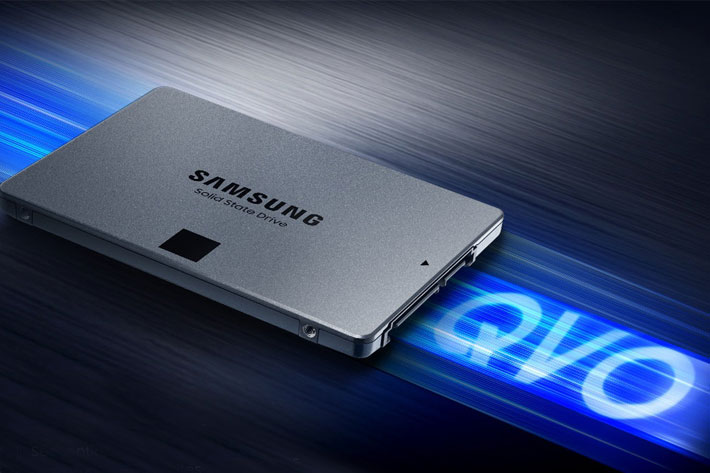
Prices for conventional SSDs are coming down, and it’s not a Black Friday or Cyber Monday trend. Samsung just announced its new 860 QVO SSD. The 1TB model costs $149.99.
The regular price for an SSD 860 EVO 2.5″ SATA III 1TB is $199.99, although the drive is available for $129.99 during this Black Friday season. What Samsung is offering with the new 1TB 860 QVO SSD is different, as the price announced is not promotional, but the final suggested retail price: yes, $149!
It’s Samsung’s Christmas present, as the new 860 QVO SSD will be available this December. It’s really something to put in your Santa’s list, because the new drive takes prices down and points to a point where the “sweet spot” for SSD prices effectively moves to higher capacities. Samsung says it is “your first Terabyte SSD”, and they surely are right.
Surely, there are various brands of SSDs, some offered at very low prices, but this may be the first time many consumers decide to buy a Samsung 1TB SSD drive, as the price seems appealing. For those who already use larger capacities, this means that buying 2 or 4TB will be made more accessible, and that’s, from where I see it, what’s really interesting about the announcement. Now is the time to upgrade or expand to the fast SSD you need.

The end of the SSD+HDD solution
In fact, the new consumer solid state drive (SSD) lineup — the Samsung 860 QVO SSD — features up to four terabytes (TB) of storage capacity with exceptional speed and reliability. Built on the company’s high-density 4-bit multi-level cell (MLC) NAND flash architecture, the 860 QVO makes terabyte capacities more accessible to the masses at approachable price points. With this drive, it becomes possible to easily transition to a single high capacity SSD at a reduced cost, while eliminating the need for a combination of an SSD boot drive and separate HDD storage drive, a solution used by most people.
“Today’s consumers are using, producing and storing more high-resolution files than ever, including 4K videos and graphics-intensive games, escalating demand for greater capacities and performance in storage devices,” said Dr. Mike Mang, vice president of Brand Product Marketing, Memory Business at Samsung Electronics. “Samsung continues to lead the move toward multi-terabyte SSDs with the introduction of the Samsung 860 QVO, delivering fast performance, reliability and value to more consumers around the world.”

Intelligent TurboWrite technology
Mainstream PC users handling large multi-media content often need to upgrade their PC’s storage to improve everyday computing experience. Based on the commonly used SATA interface and 2.5-inch form factor, the 860 QVO fits perfectly in most standard laptops or desktops. Also, by offering both high capacity and performance in a single, affordable drive, the 860 QVO eliminates, as mentioned above, the need to use a combination of an SSD and an HDD for booting and storage. For laptop users in need of a boost, the 860 QVO may well be a good upgrade route.
Featuring sequential read and write speeds of up to 550 megabytes per second (MB/s) and 520 MB/s, respectively, the 860 QVO achieves the same level of performance as today’s 3-bit MLC SSD, thanks to Samsung’s latest 4-bit V-NAND and the proven MJX controller. The drive is also integrated with Intelligent TurboWrite technology, which helps to accelerate speeds while maintaining high performance for longer periods of time.
A Samsung 860 QVO 4TB for $300
Based on a thorough analysis of consumers’ SSD usage patterns, Samsung has designed the drive for optimal reliability: a three-year limited warranty or up to 1,440 terabytes written (TBW) for the 4TB version, and 720 TBW and 360 TBW for the 2TB and 1TB versions, respectively.
While the 860 QVO 1TB drive is a good solution for most consumer uses, what appeals to me here are the 2 TB and 4TB drives, as they are available at $300 and $600, respectively, meaning the price per GB is great at those capacities, much less than you would usually pay. Besides, the cache on the 2TB and 4TB is larger, meaning they will be more efficient when dealing with huge amounts of data.

